The METAVASIS Program: Retrospective
An Example of Bridging Continents for Building Successful Collaborations and Sustainable Solutions

THE CHALLENGE: ENERGY TRANSITION AND VULNERABLE COMMUNITIES
The Energy Transition is most often defined in popular media as a global technological change centered on the need to reduce greenhouse gas emissions. When viewed solely through a technology perspective, envisioning the future energy landscape could leave out considerations around the socio-economic-environmental impacts of energy transition – notably what would or could lead to overall benefits in climate impacts and clean energy delivery for disadvantaged communities.
It is often assumed that major infrastructure investments will trigger economic growth and thereby automatically benefit underserved and/or vulnerable groups, but this is not always the case. Evidence shows that environmental inequalities are increasing, contrary to the principles of access and inclusiveness, environmental justice, fair treatment, and meaningful involvement. Emerging studies now show that the social dimension for change is equally important to environmental needs and technological opportunities.
Moreover, due to the transition toward clean energy, shortages in the workforce are expected that will impact, not only the communities whose economies are closely linked to traditional sources of energy (e.g., oil extraction, coal) but also those whose economies and labor forces are based in related industries.
Greece and the State of Texas are solid examples of the transition toward clean energy. However, the repercussions of this rapid change (associated with energy technology and economic transition) have not been sufficiently studied or assessed.
In Texas, which is largely considered the energy capital of the world, five of the top ten shale gas-producing counties are above the national average poverty rate. In the Greater Houston area, communities along Houston’s Ship Channel have experienced a host of health issues due to their proximity to industrial facilities and several issues of environmental injustice have been identified: Placement of toxic waste dumps and industrial facilities that emit high levels of pollution in and near marginalized neighborhoods, placement of chemical plants and oil refineries that emit airborne pollutants in and near communities of color, chemical accidents, toxic pollutants in the air and nearby bodies of water, redlining and racial zoning. In addition to environmental inequity issues, due to the energy transition, Texas will lose approximately 150,000 jobs in the oil and natural gas industry between 2020 and 2050.
Greece remains committed to its promises to the EU’s 2030 targets on delignitization. The government announced a lignite phase-out by 2028 and committed to achieving climate neutrality by 2050, and is steadily implementing a targeted network of related actions, which includes among others, renewable energy sources, licensing/regulatory framework for energy storage, and H2, energy upgrading, etc. Reducing lignite mining and power generation has a social dimension in lignite-producing areas. The lignite coal units in two of the Least Developed Regions (Kozani/Ptolemaida in Western Macedonia and Megalopolis in Peloponnese) have already been retired. The fact that the economy of these areas has been nearly exclusively focused on coal production, a lignite monoculture, makes the economy of these areas particularly vulnerable.
Delignitization is expected to intensify the problem of low investment/disinvestment in innovation that already exists in these areas, causing further adverse effects on the transformation of the economy, competitiveness, and attractiveness of these regions as places to live and work. According to a recent study by the Foundation for Economic & Industrial Research (IOBE), approximately 10,600 jobs will be lost in Western Macedonia and more than 3,100 in Megalopolis because of the delignitization process until 2029 (directly, indirectly, and induced), compared to 2019.
The METAVASIS project: FOSTERING A JUST ENERGY TRANSITION
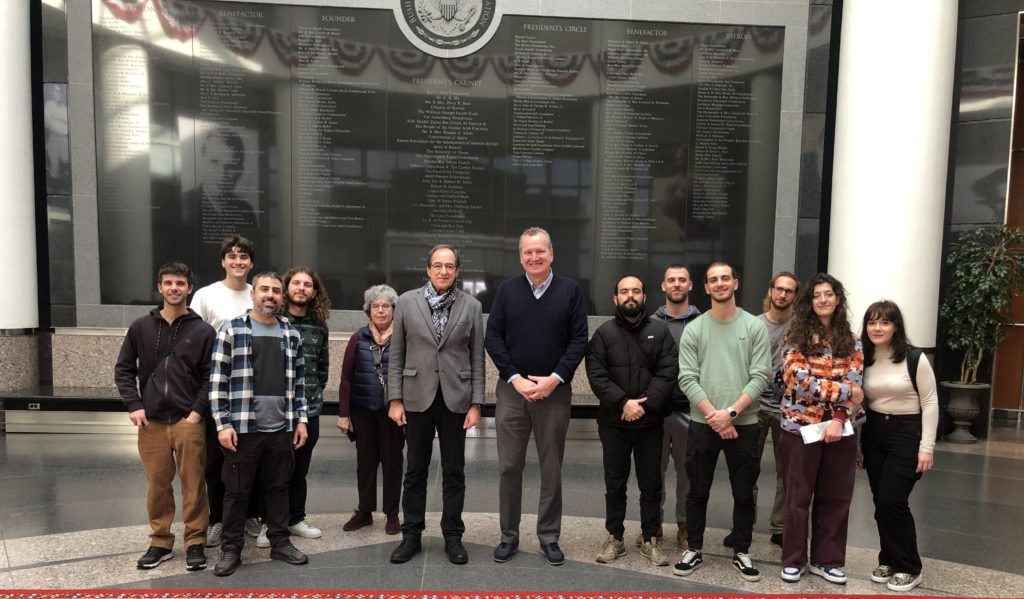
To address challenges associated with the energy transition on vulnerable communities the Texas A&M Energy Institute and the Agricultural University of Athens (AUA) with the support of the US Embassy in Athens, are implementing since September 2023 the Mobility for Energy Transition Awareness to Bring About Societal Impacts (METAVASIS) project. Led by Dr. Konstantinos Pappas, Assistant Director of the Texas A&M Energy Institute, and co-led by Dr. George Papadakis, Professor of Renewable Energy Technology at the Agricultural University of Athens, the project seeks to mitigate energy transition challenges by ensuring a focus on social equity and inclusivity in the energy transition process.
Project Goals and Activities
METAVASIS aims to improve students’ understanding of the economic, social, and environmental impacts of the energy transition on vulnerable communities and marginalized regions in Greece and Texas, through a student exchange program and educational enhancement activities.
A group of 20 students from Texas A&M University (TAMU) and AUA participated in joint projects, focusing on critical areas such as water-energy nexus, energy, and climate change, microgrids and energy communities, renewable energy technologies, and socio-economic aspects of energy transitions. Through faculty mentorship, online meetings, joint workshops, and Dr. Papadakis’ Special International Energy Seminar, students developed skills and gained valuable insights from diverse perspectives.
METAVASIS’ goal is not to encourage slowing down the necessary energy transition, but to create future energy leaders and policymakers who understand what considerations are necessary for a just energy transition, by navigating the social, economic, and environmental complexities of this transition.
The METAVASIS project demonstrates the value of international collaboration in addressing a significant global challenge. Through student exchange, knowledge sharing, and a focus on community well-being, this initiative contributes to a more sustainable future.
~Dr. Konstantinos Pappas
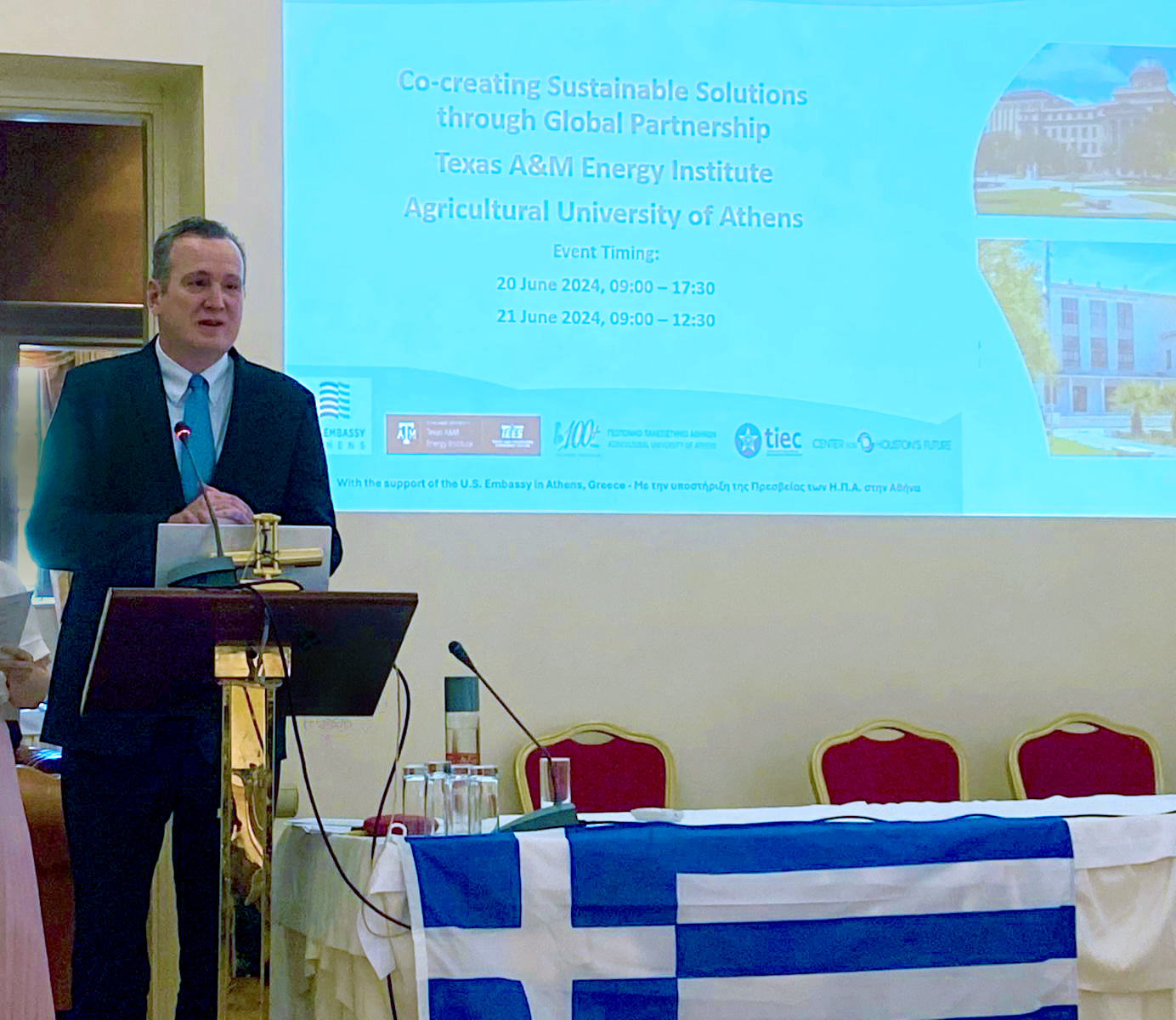
The Human Dimension
Impacts Faced by Communities Near Texas Industrial Plants
In February 2024, a team of students from the AUA and TAMU visited Manchester, a vulnerable community along the Houston Ship Channel that shares boundaries with oil and gas refineries. Students had the opportunity to visit with Manchester residents who have experienced a host of health issues and economic decline due to their proximity to industrial facilities. Manchester residents have identified the following major challenges:
- Placement of toxic waste dumps and industrial facilities that emit high levels of pollution in and near marginalized neighborhoods
- Placement of chemical plants and oil refineries that emit airborne pollutants in and near communities of color, chemical accidents, toxic pollutants in the air and nearby bodies of water
- High risk of health problems, including cancer and asthma
- Redlining and racial zoning that leads to degradation of historically Black and Brown neighborhoods
- Anticipated loss of approximately 150,000 jobs in the oil and natural gas industry between 2020 and 2050
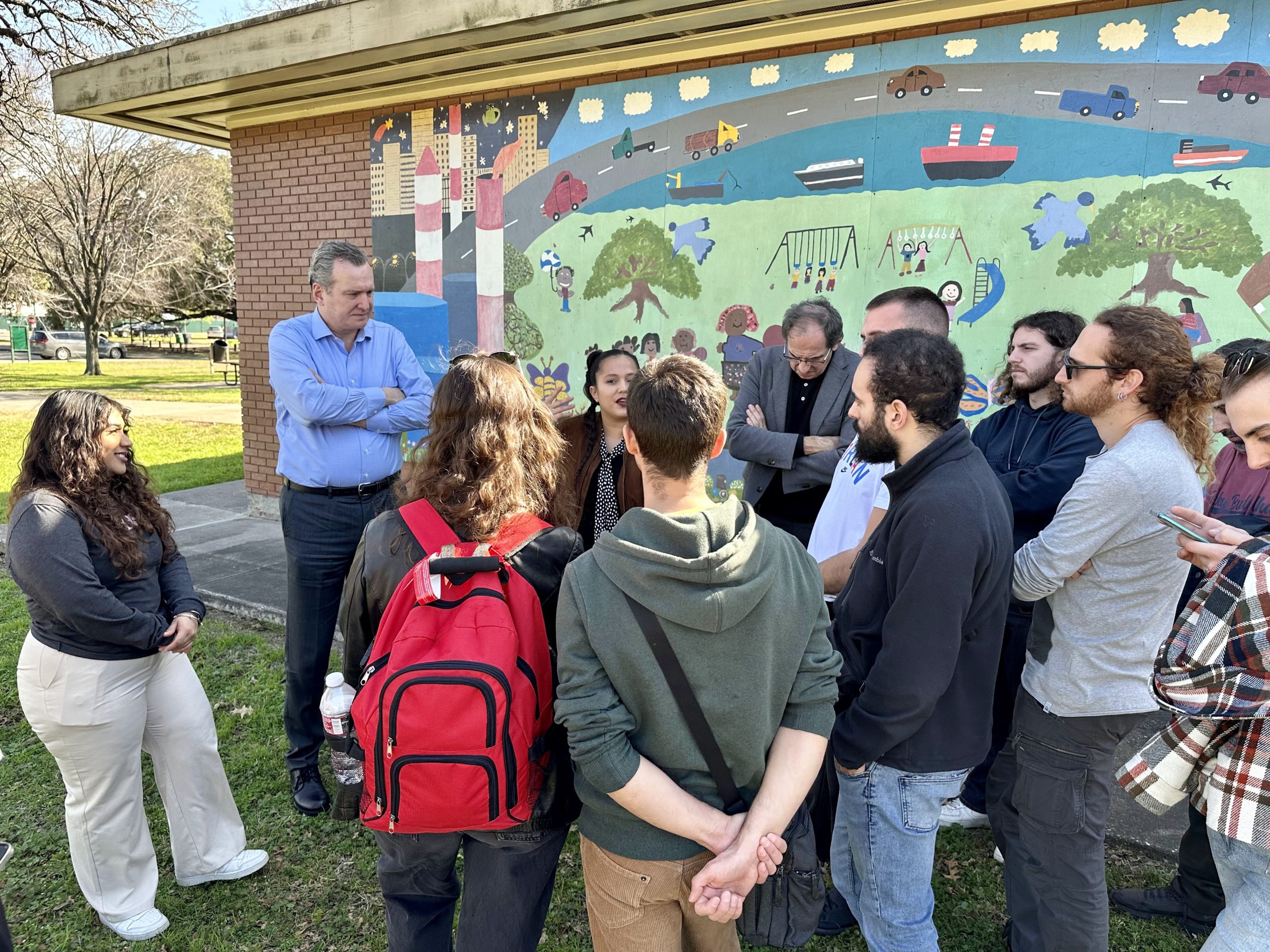

Effects of Fast Energy Transition in Greece
In March 2024, the students had the opportunity to meet in Greece with officials from the Region of Peloponnese and local stakeholders and hear their energy-related concerns and how they were planning to tackle those issues, as well as to communicate their ideas with them. They visited the city of Megalopolis, which previously operated a massive-scale lignite coal mine that supplied 25% of Greece’s energy as a whole. They shared the agony of the city leaders about the repercussions after the shutdown of the coal mine to the local workforce, economy, and social sustainability, and the massive exiting migrations of their population the city experiences. They also talked with them about the current restorative state for the economy and welfare of the people in the city, and their plans to install over 400 MWh of photovoltaics to supplant the missing energy and the potential for clean hydrogen and massive hydroponic agriculture, as well as about the benefit of the reduced amount of cancer cases as a result of less atmospheric pollution after the coal plant retiring.
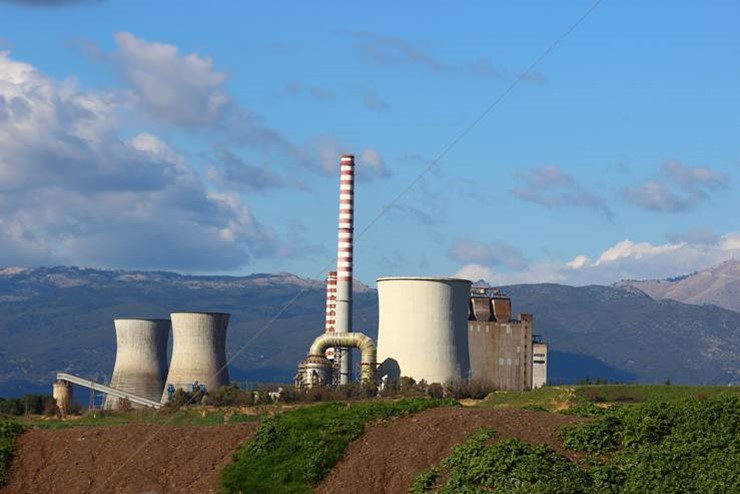
Student Exchange Visits and Experiential Learning
The project facilitates enriching exchange visits that allow students to witness the realities of the energy transition firsthand. AUA students visited Houston’s Ship Channel in Texas where they observed industrial facilities and interacted with local stakeholders. Similarly, Texas A&M students traveled to Greece and visited Megalopolis, a city grappling with the social and economic impacts of a coal mine closure. These experiences foster empathy and understanding of the human dimension of the energy transition.



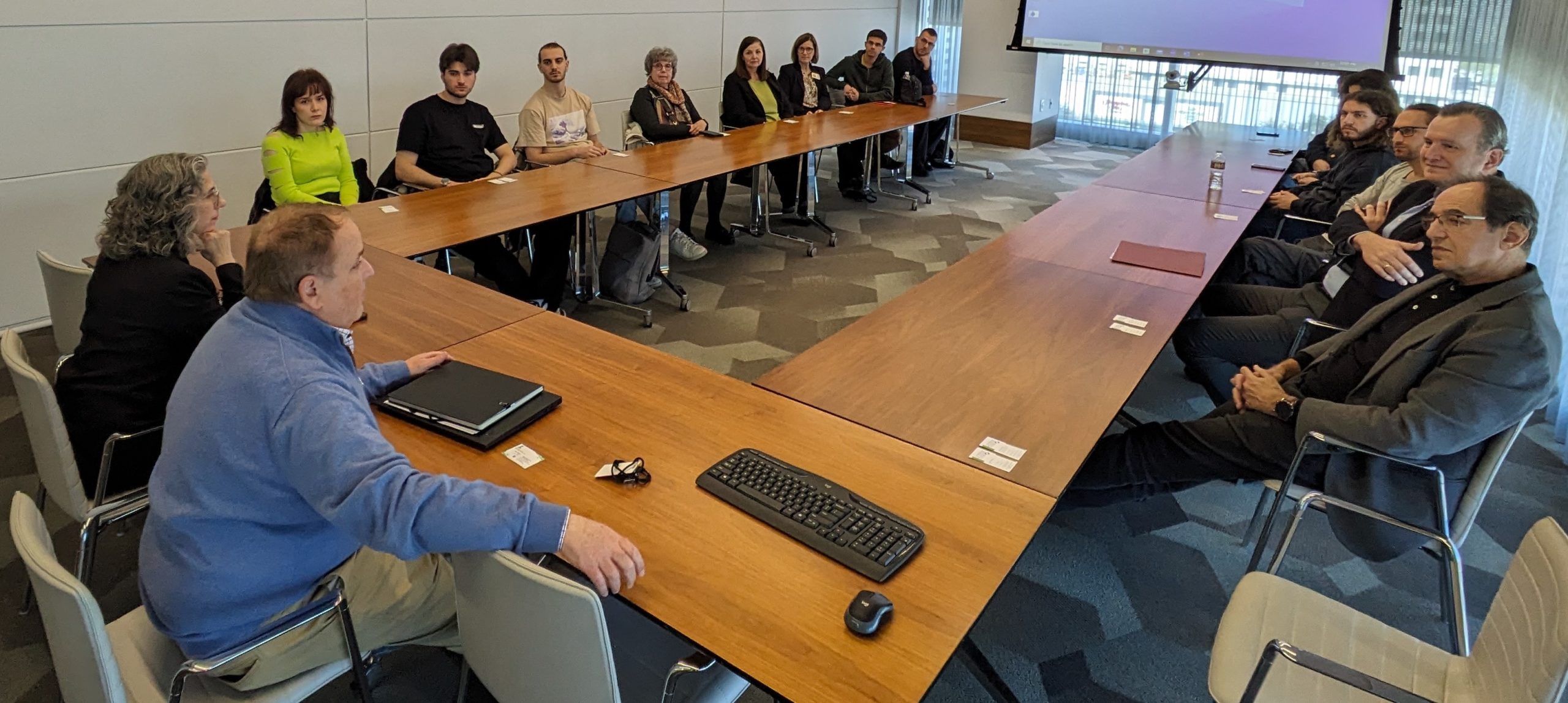
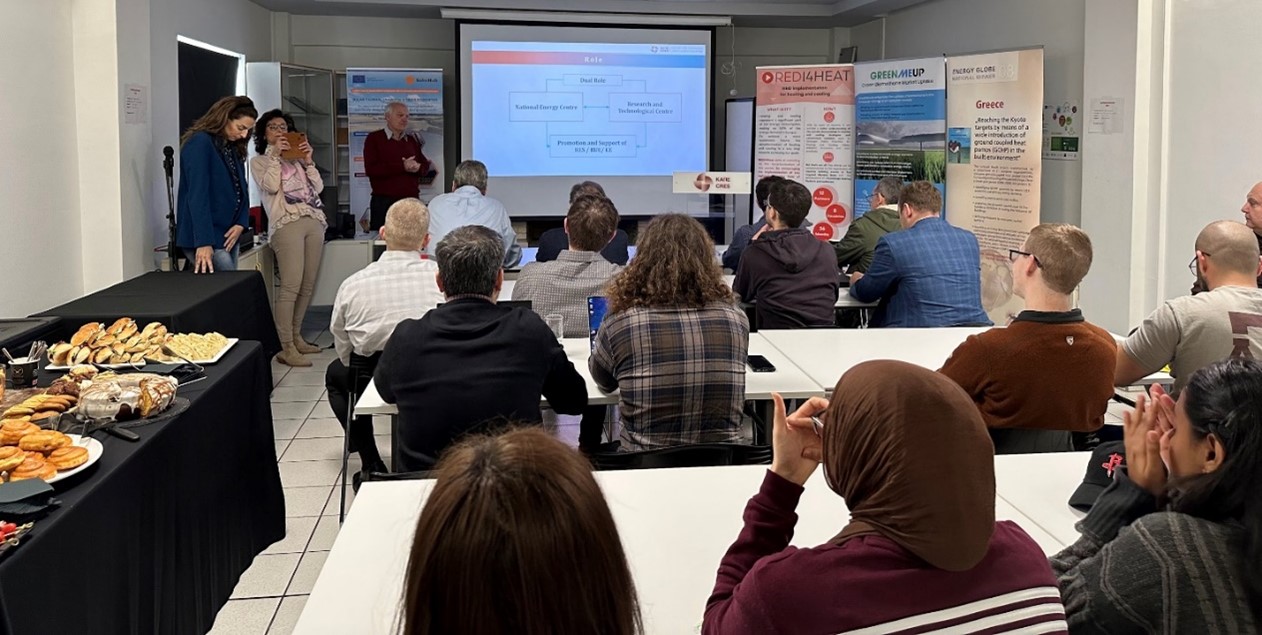


Building on Success: A Catalyst for Change
The METAVASIS project has already yielded significant results and catalyzed broader cooperation between Texas A&M University and the Agricultural University of Athens. A signed Memorandum of Understanding by Dr. Stratos Pistikopoulos, Distinguished Professor of Chemical Engineering and Director of the Texas A&M Energy Institute; Prof. Thomas Bartzanas, Vice Rector of Research, Finance, and Development and Professor at the Agricultural University of Athens; and Dr. Cliff Lamb, Director of Texas A&M Agrilife Research, paves the way for joint educational and research initiatives. Additionally, the project has fostered connections with the Universidad Privada de Santa Cruz de la Sierra in Bolivia, creating a network for potential scaling up of collaborative efforts.
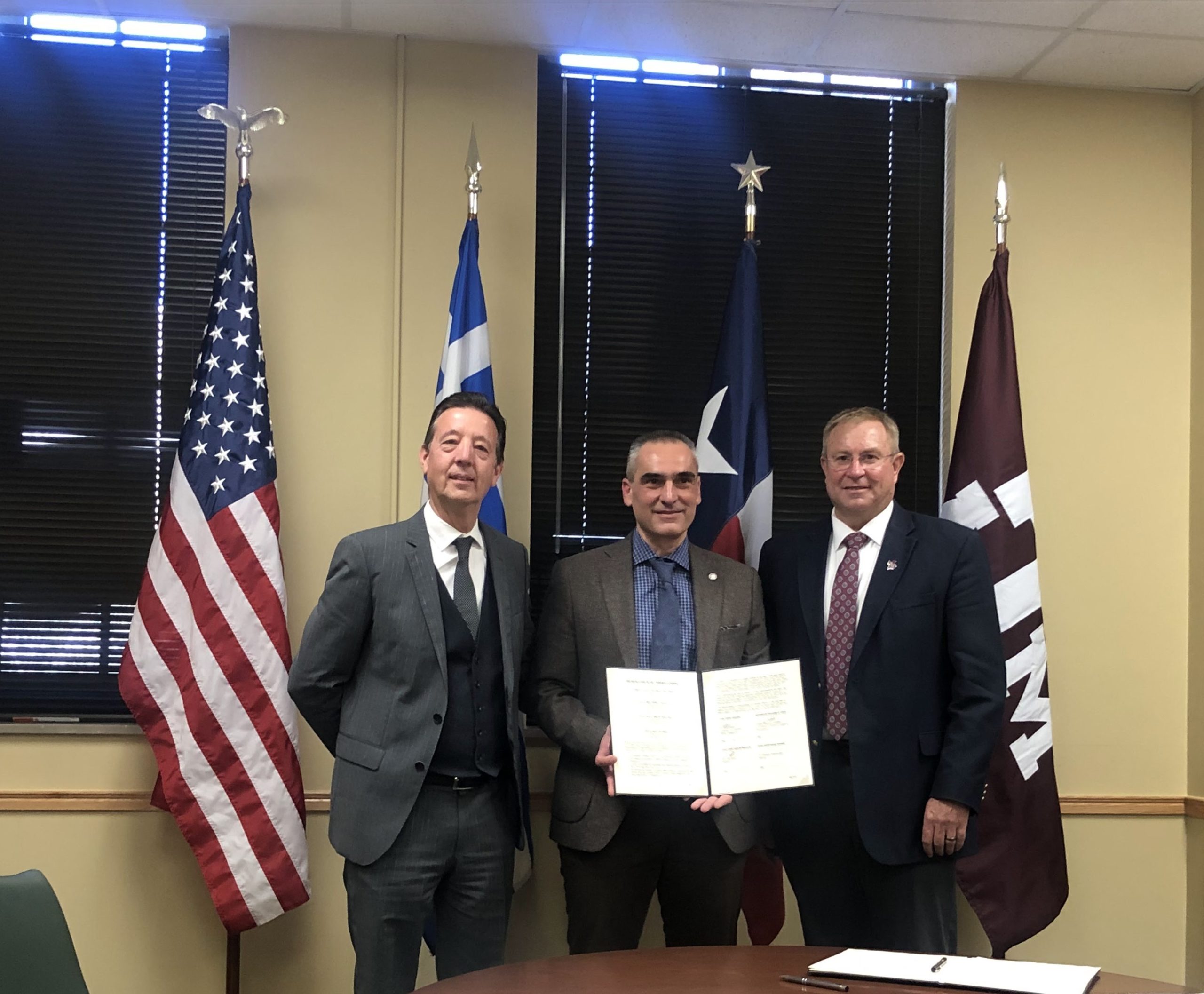
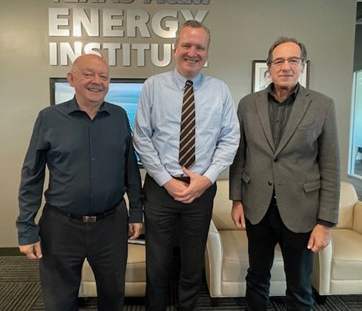
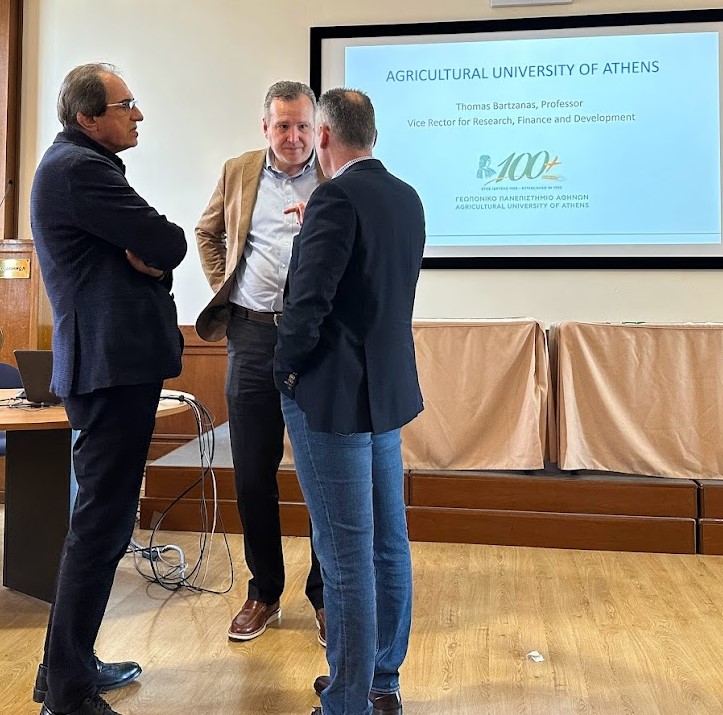
Looking forward: Bridging Continents for Sustainable Solutions
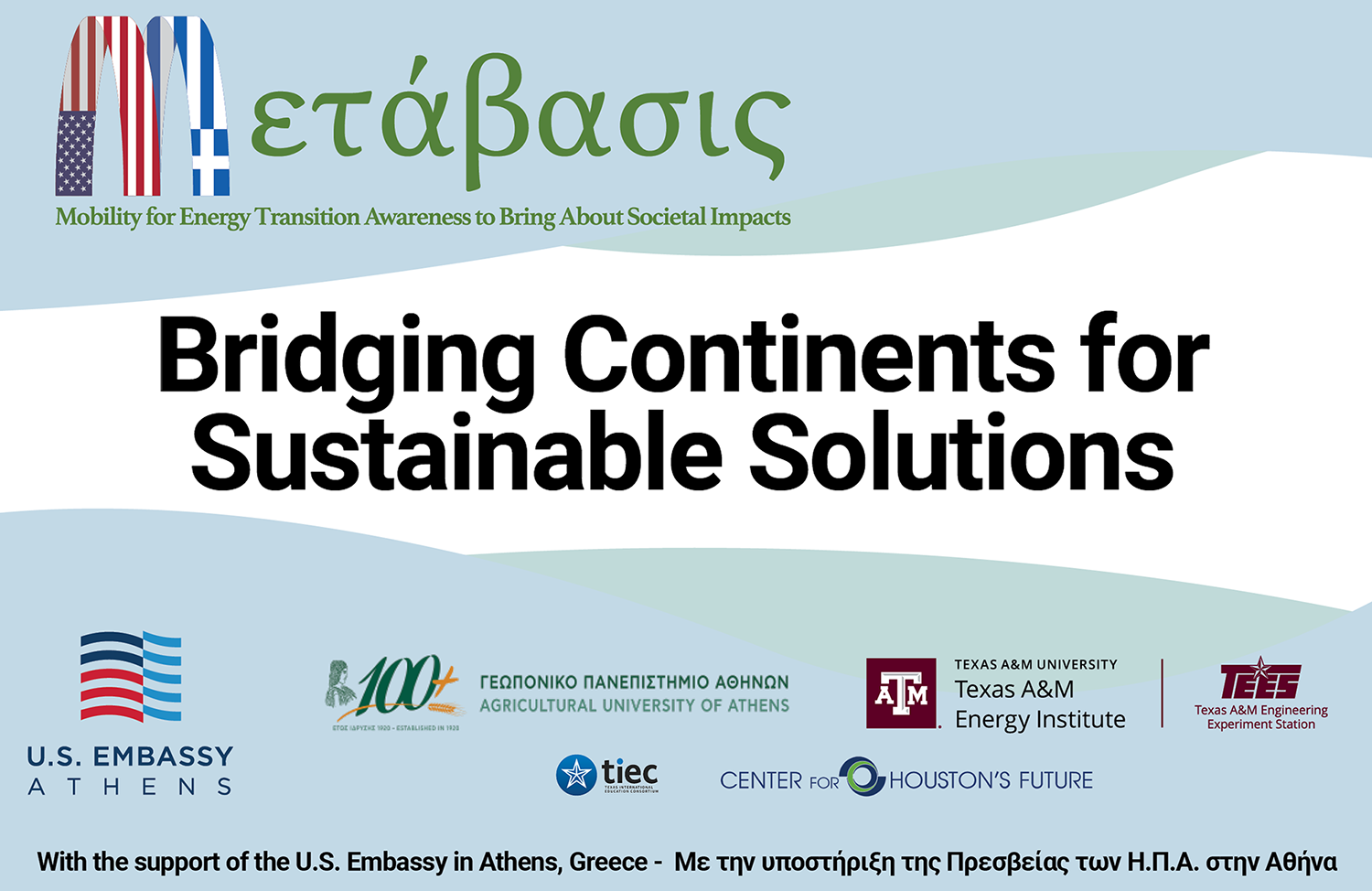
In June 2024, AUA and TAMU hosted a workshop in Athens entitled, Bridging Continents for Sustainable Solutions, to further solidify the collaborative efforts.
At this event, international, national, and local officials presented information on energy transition plans. The METAVASIS student teams showcased their findings and the officials, students, faculty members, and scientists gathered in a collaborative environment to further foster research, enabling growth across the TAMU and AUA strategic partnership.
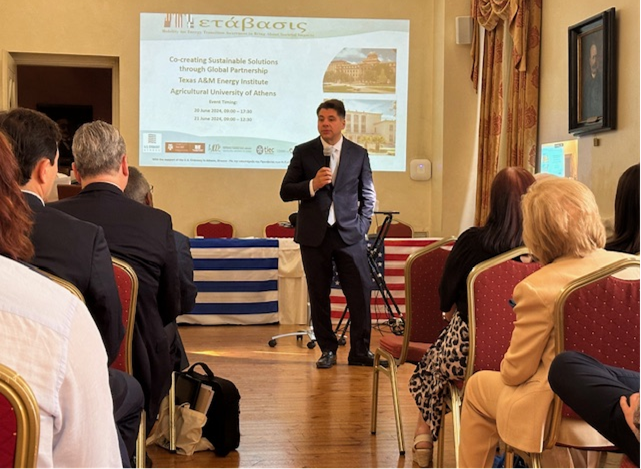
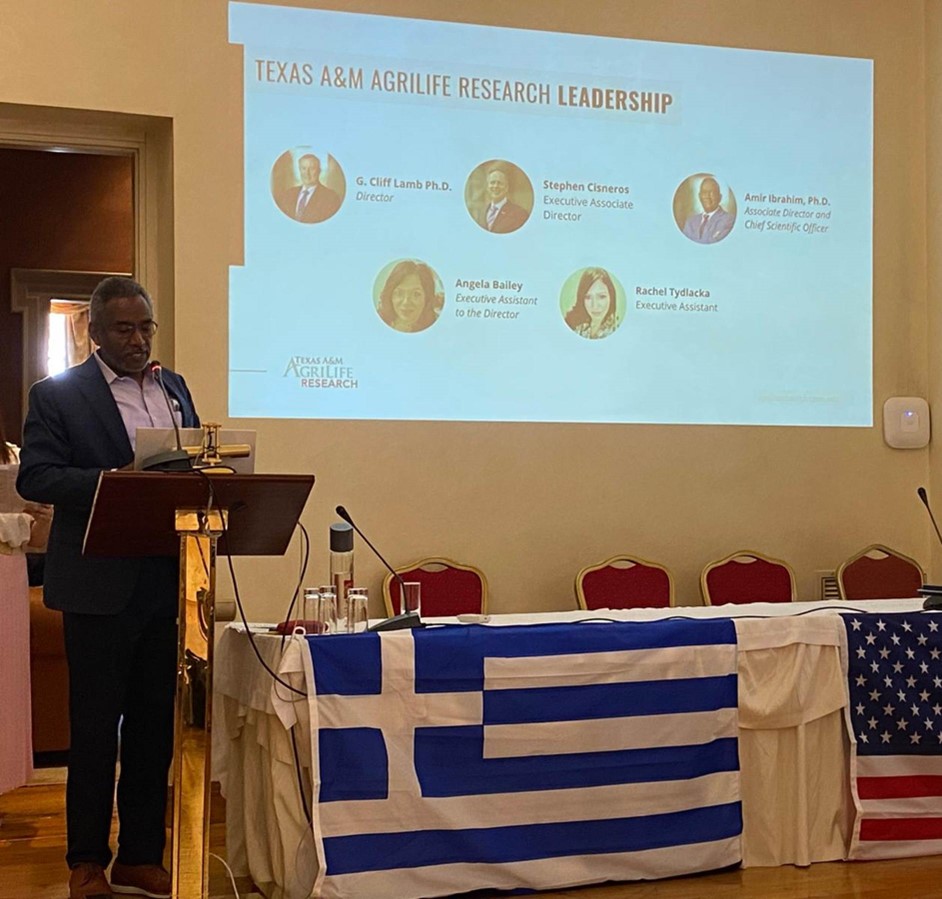
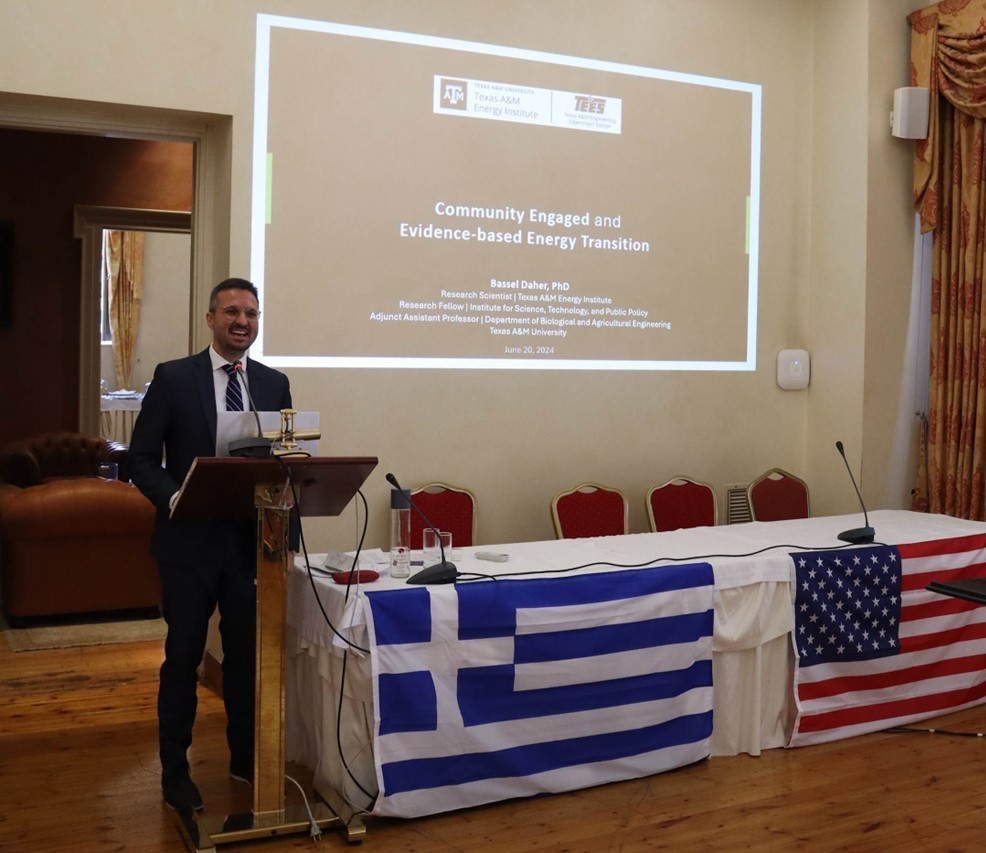
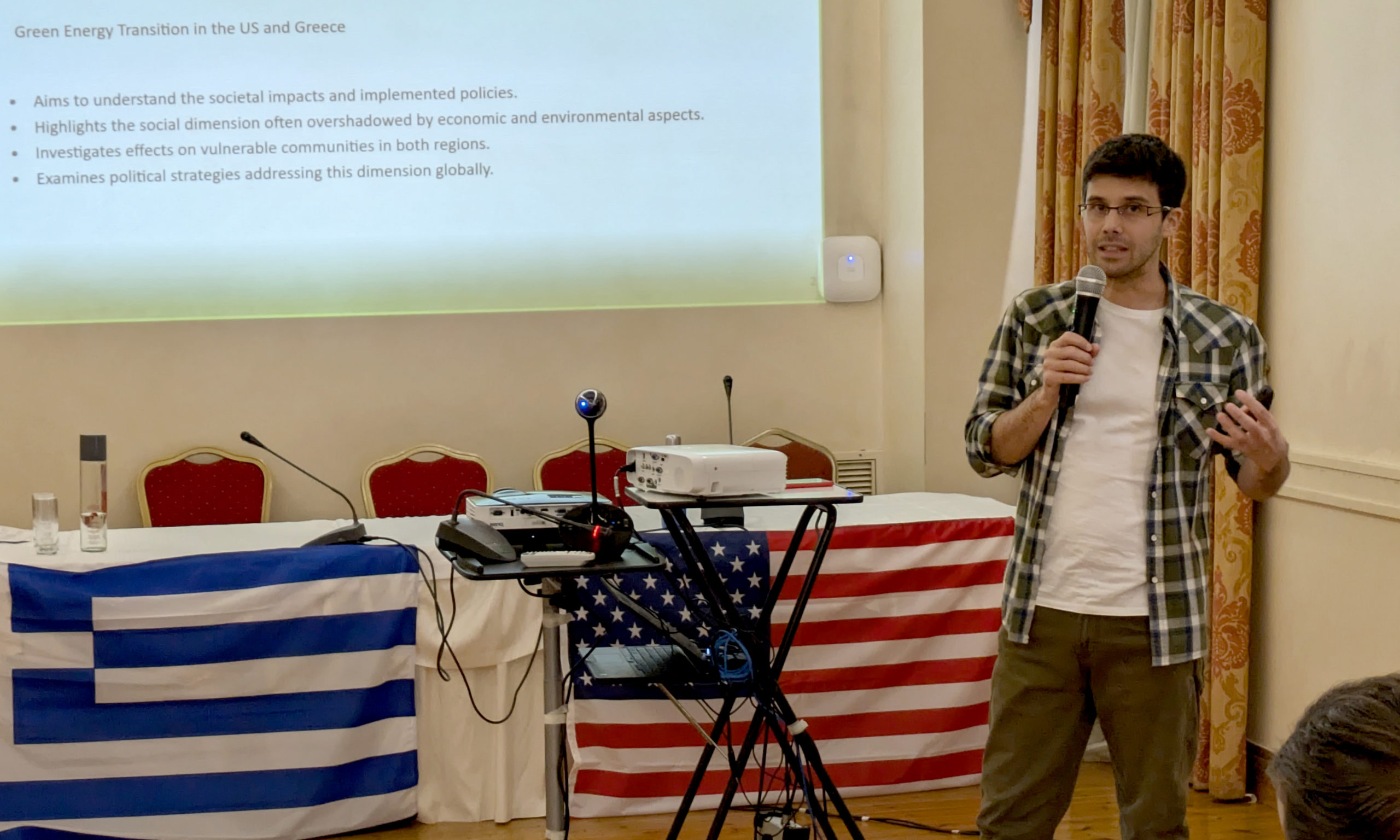



METAVASIS Program
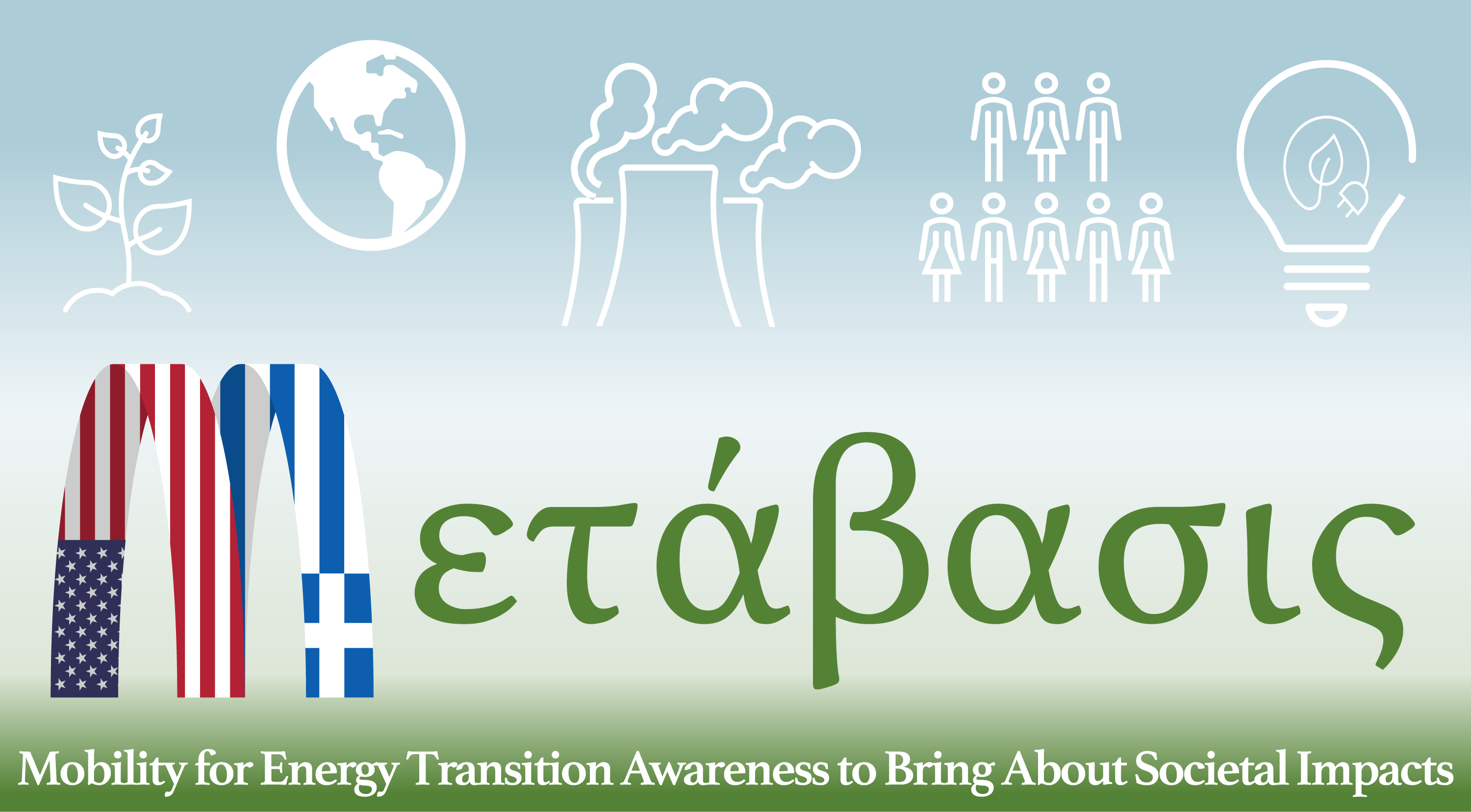
Learn more about the Texas A&M Energy Institute’s METAVASIS program:
- News Articles
- Events

